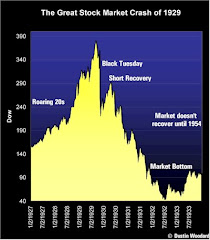Federal workers earn 20 to 30 percent more per hour than their private sector counterparts. And where local, state, and federal government workers really come out ahead isn’t just in pay; it’s in the benefits. Most private sector workers can only dream of getting the generous lifetime pension and health benefits typical of government service.
These dream benefits are fast becoming a nightmare for taxpayers. Federal pension payouts roll into the $13 trillion national debt. Washington seems little concerned about that, because there’s no urgency to balance the budget.
But most state and local governments are required to produce balanced budgets, and they find themselves increasingly hard-pressed to satisfy their pension obligations
Unlike private pensions, state and local government pensions are typically 100 percent guaranteed. In California, for example, 12,000 public employees are guaranteed annual pensions exceeding $100,000 apiece. Private employer pensions, by contrast, do not have an automatic draw on government treasuries. Even the most generous ones are insured up to a benefit cap well below $100,000.
Local and state officials find themselves between a rock and a hard place: insatiable public employee unions and tapped-out taxpayers. The unions are a formidable political force, which is why public pensions have gotten out of hand in so many states. But at some point the bill comes due. That reckoning is fast-approaching and will be excruciating in many places.
Government at all levels has kicked the fiscal can down the road for far too long. Where public pensions are concerned, many jurisdictions are running out of road. Taxpayers should demand that their states honestly assess public pension plans, accurately measure the assets and liabilities, and take steps to provide fair benefits to public employees that limit taxpayers’ liability.It is interesting to note the biography of the writer of this article: Elaine L. Chao, who served as US Secretary of Labor from 2001-2009
Inevitable solution
An article looking at one pension fix in the US provides excellent insight into the pension problem.
Pension Primer
While there are any number of possible fixes for this complex problem, the solution will fall short if it fails to move state employers away from traditional pension benefits and toward a defined contribution system such as the 401(k).
That idea is likely to infuriate the unions that represent state workers. For generations, they've argued that pensions are the reward public employees should receive for wages that consistently fall short of their private-sector counterparts. And they're likely to point out that 401(k) accounts have lost value as much or more than pension funds in recent years.
Public employees may prefer the state-guaranteed pensions of the past — and, to be fair, most aren't getting rich off current benefits, no matter how unaffordable they've become to the rest of us. That may not sound appealing to those who have devoted their lives to government service, but it's an unavoidable reality. If Maryland's system is to be fixed, defined contribution plans are going to have to play a far larger role in the future.
These recommendations are applicable for all public sector pension plans.
It does not matter where the pension plans are. The same principles and problems exist for them equally. In Canada there is a currently debate on pensions in Fredericton. Government will face pressure to change rules
It really is too bad so much time is wasted in the public forum on these discussions. All public sector plans should be converted into defined contribution. This bring about the end of the fairness discussion.
It would allow governments everywhere to focus on discussions that would benefit all citizens and not just those on the public dole.
Bill Tufts
Fair Pensions For All



1st I heard of this $150B shortfall.. I believe it!!
ReplyDeletewhat the references for it and what assumptions were made (eg. future mkt returns etc etc..
Thanks!!!